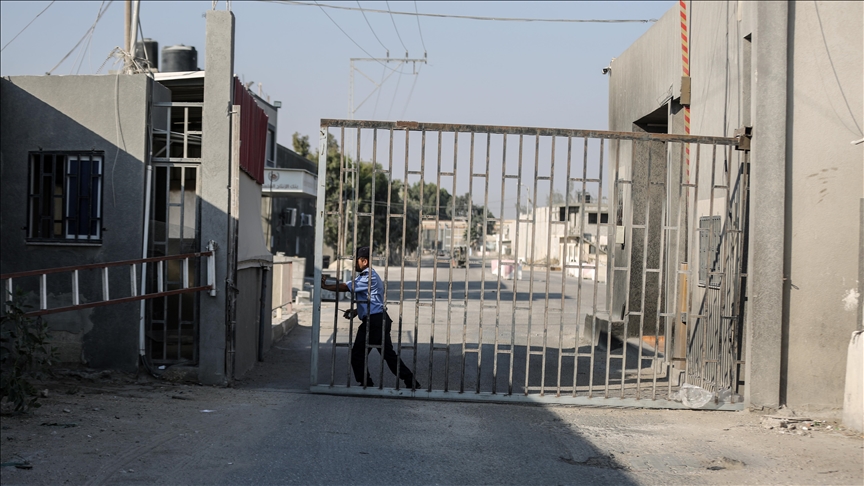WASHINGTON
The White House said Tuesday that it wants to see the Rafah border crossing between the besieged Gaza Strip and Egypt opened “as soon as possible” after Israeli forces seized the post.
National Security Council spokesperson John Kirby told reporters that US President Joe Biden raised the need to quickly reopen Kerem Shalom, the border crossing between southern Gaza and Israel that has been the primary port of entry for aid deliveries, during a telephone call Monday with Israeli Prime Minister Benjamin Netanyahu.
The Israeli leader “assured the President that it will be open very soon,” he said during a virtual briefing.
“We need to see that happen, but it is closed right now. Rafah is also closed, and we want to see that opened up as soon as possible,” he said. “It’s absolutely critical that the humanitarian assistance continue to flow. That was a major point made by President Biden yesterday on the phone in the phone call with Prime Minister Netanyahu, and we have backed it up at other levels inside the administration. It’s got to be resumed.”
Israel closed Kerem Shalom following a rocket attack Sunday by Hamas that killed four Israeli troops and injured 10 others.
On Tuesday, Israeli forces seized control of the Rafah border crossing linking Gaza with Egypt, closing it to all traffic.
The Israeli army said the 401st armored brigade took “operational control” of the Rafah crossing from the Palestinian side.
Israel said its forces are conducting a “sweep operation” in the areas of eastern Rafah it seized, claiming to kill 20 Palestinian gunmen.
The spokesman of the Palestinian border crossing authority confirmed earlier that the border was closed from the Palestinian side.
Kirby said Israeli officials told the Biden administration that the Israelis “have assured us that” their military invasion of Rafah “is of limited time, scale, scope and duration,” reiterating US opposition to a major ground offensive in the city due to humanitarian concerns for the roughly 1.5 million Palestinians who have sought refuge after being displaced by Israel’s war.
He maintained that Israel has not presented Washington with “any such plan” for an operation that would factor into account those humanitarian concerns.
Biden, Kirby said, was “very clear” about the humanitarian concerns posed by any large-scale military invasion of Rafah during a call Tuesday with Netanyahu.
“We’re going to be monitoring the situation very, very closely to see how it unfolds,” he said.
Turning to ongoing negotiations for a cease-fire deal that would see the release of hostages who continue to be held in Hamas captivity, Kirby said, “A close assessment of the two sides’ positions suggests that they should be able to close the remaining gaps.
“We’re going to do everything we can to support that process and achieve that outcome,” he said. “Hamas responded yesterday. There were amendments offered. Again, that’s the task of negotiating. That’s what negotiations are all about. It’s our understanding from looking at the text that we feel it suggests that we should be able to close these gaps.”
Israel said the offer accepted Tuesday by Hamas does not meet its key demands, and said it decided to push ahead with an operation in Rafah to apply “military pressure on Hamas with the goal of making progress on freeing the hostages and the other war aims.”
Israel has pounded the Gaza Strip in retaliation for an Oct. 7 Hamas attack, which killed less than 1,200 people.
Nearly 34,800 Palestinians have since been killed in Gaza, the vast majority of whom have been women and children, and 78,100 injured, according to Palestinian health authorities.
Nearly seven months into the Israeli onslaught, vast swathes of Gaza lay in ruins, pushing 85% of the enclave’s population into internal displacement amid a crippling blockade of food, clean water and medicine, according to the UN.
Israel is accused of genocide at the International Court of Justice. An interim ruling in January said it is “plausible” that Israel is committing genocide in Gaza, and ordered Tel Aviv to stop such acts and take measures to guarantee that humanitarian assistance is provided to civilians.

